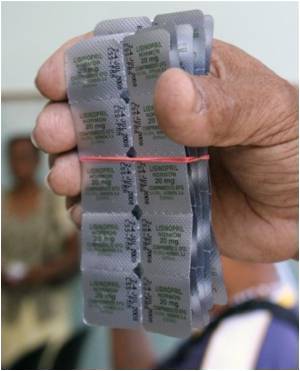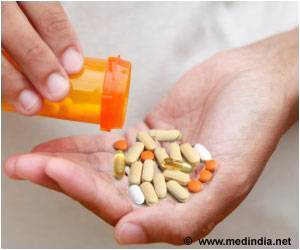In African-Americans, intake of vitamin D supplements was found to reduce blood pressure, report researchers.

"Although this needs to be studied further, the greater prevalence of vitamin D deficiency among African-Americans may explain in part some of the racial disparity in blood pressure," said John P. Forman, M.D., M.Sc., lead author of the study and Assistant Professor of Medicine in the Renal Division and Kidney Clinical Research Institute at Brigham and Women's Hospital in Boston, Mass.African-Americans have higher rates of hypertension and lower levels of circulating 25-hydroxyvitamin D (vitamin D3 or cholecalciferol) than the rest of the U.S. population.
Few studies have included enough African-Americans to determine whether vitamin D supplements might reduce the racial disparity.To explore this, researchers from seven major teaching hospitals conducted a four-arm, randomized, double-blinded study of 250 black adults. They tested blood pressure after a three-month regimen of daily vitamin D supplementation at one of three doses, and compared the findings with a group taking placebo vitamins:
- Taking 1,000 units of vitamin D each day for three months was associated with a .7 mm Hg decrease in systolic blood pressure.
- Taking 2,000 units was linked to a 3.4 mm Hg decrease.
- Taking 4,000 units netted a 4 mm Hg drop.
- Participants taking placebo supplements had an average increase of 1.7 mm Hg.
Furthermore, diastolic blood pressure didn't change in any of the four groups.In prospective studies, lower blood levels of 25-hydroxyvitamin D have been independently linked with an increased risk of developing hypertension. "If vitamin D supplementation lowered blood pressure among African-Americans, its widespread use could have major public health benefits," said Andrew T. Chan, M.D., M.P.H., co-author of the study and Assistant Professor of Medicine in the Division of Gastroenterology at Massachusetts General Hospital.
Source-Eurekalert















